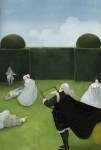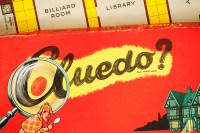The Bondi Beach shooting was a pogrom












All the latest analysis of the day's news

An intelligent mix of culture, food, style and property, plus where to go and what to see.





At some point during this Advent season and the coming of Christmas, you will log on to your computer, and you will see somebody smugly opining that ‘actually Christmas is a pagan festival’. This person will not know anything about pagans, bar some fuzzy ideas about equinoxes (always with the equinoxes) and sacrifice. The reasons


This week's magazine
The Queen · Peter Thiel · Nigel Farage · Andrew Strauss · Matthew McConaughey · Ben Shapiro … and more
Peter Thiel has been described variously as ‘America’s leading public intellectual’, the ‘architect of Silicon Valley’s contemporary ethos’ or as an ‘incoherent and alarmingly super-nationalistic’ malevolent force. The PayPal and Palantir founder, a prominent early supporter of Donald Trump, is one of the world’s richest and most influential men. Throughout his career, his principal concern
Peter Thiel has been described variously as ‘America’s leading public intellectual’, the ‘architect of Silicon Valley’s contemporary ethos’ or as an ‘incoherent and alarmingly super-nationalistic’ malevolent force. The PayPal and Palantir founder, a prominent early supporter of Donald Trump, is one of the world’s richest and most influential men. Throughout his career, his principal concern
The good, the bad and the ugly in books, exhibitions, cinema, TV, dance, music, podcasts and theatre.
‘On BBC 2 last Monday,’ noted the Sunday Telegraph’s TV critic Trevor Grove in February 1979, ‘the return of Fawlty Towers was immediately followed by a programme about faulty towers.’ He went on: This was odd, but on close examination turned out to be without significance. After all, what connection could there possibly be between







